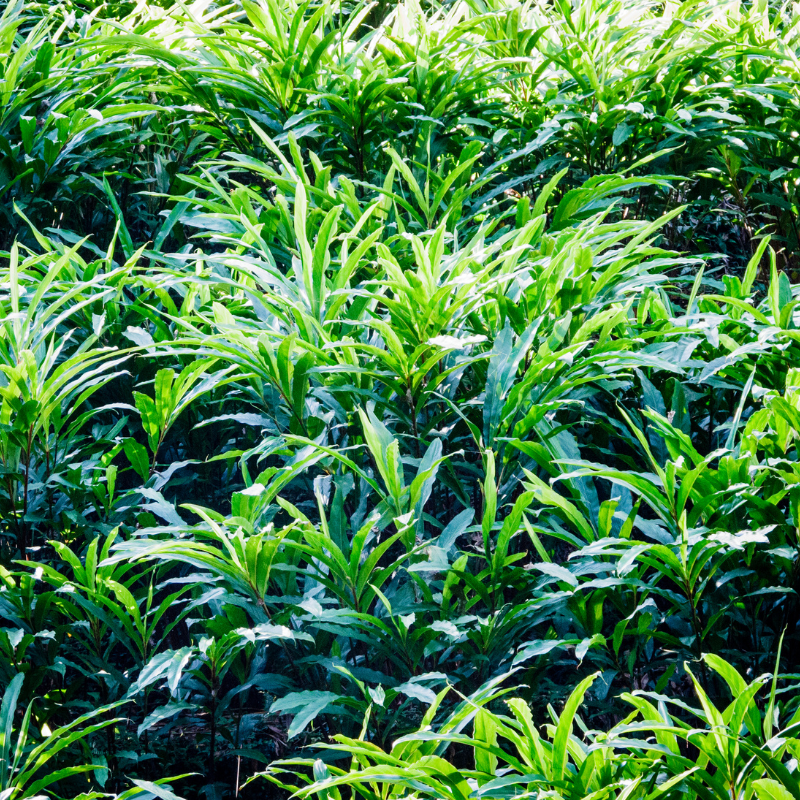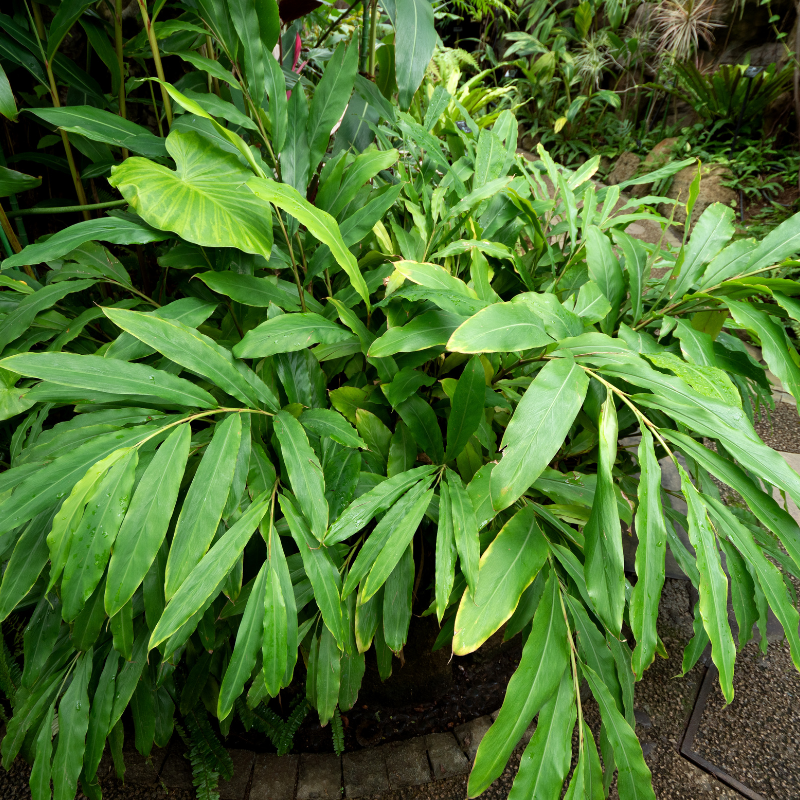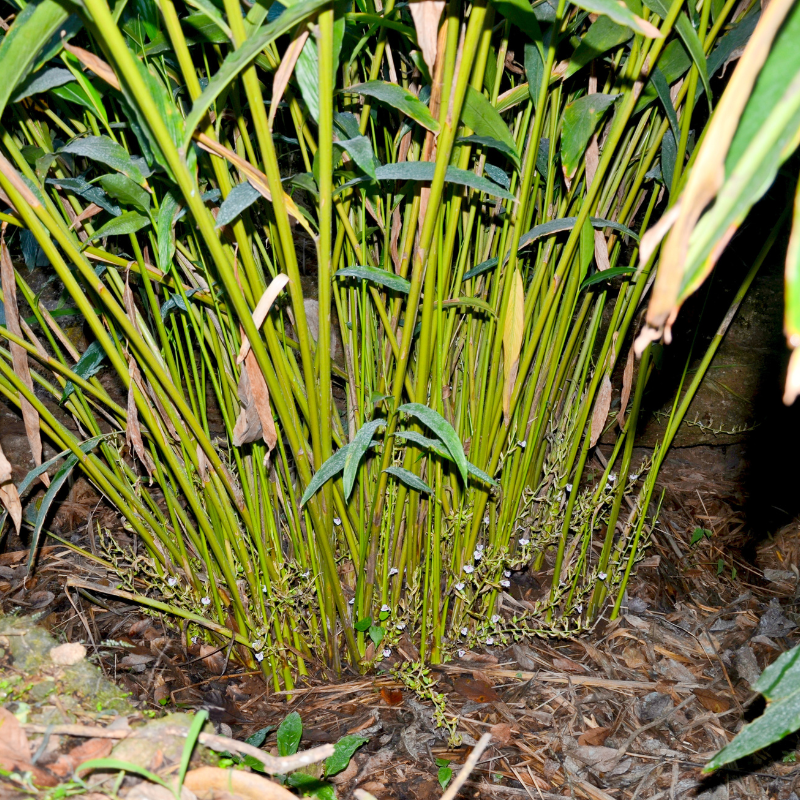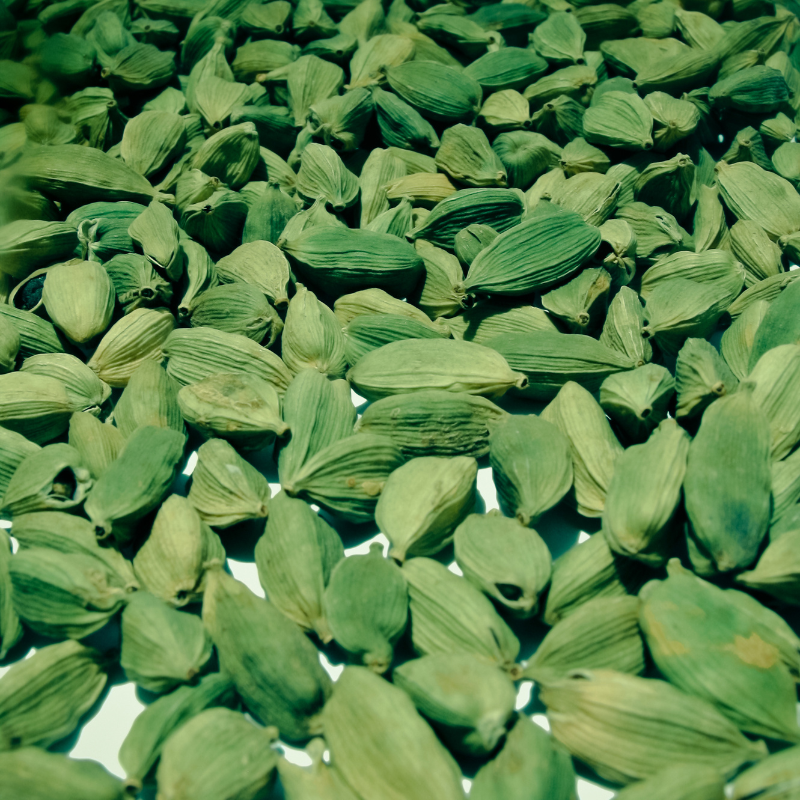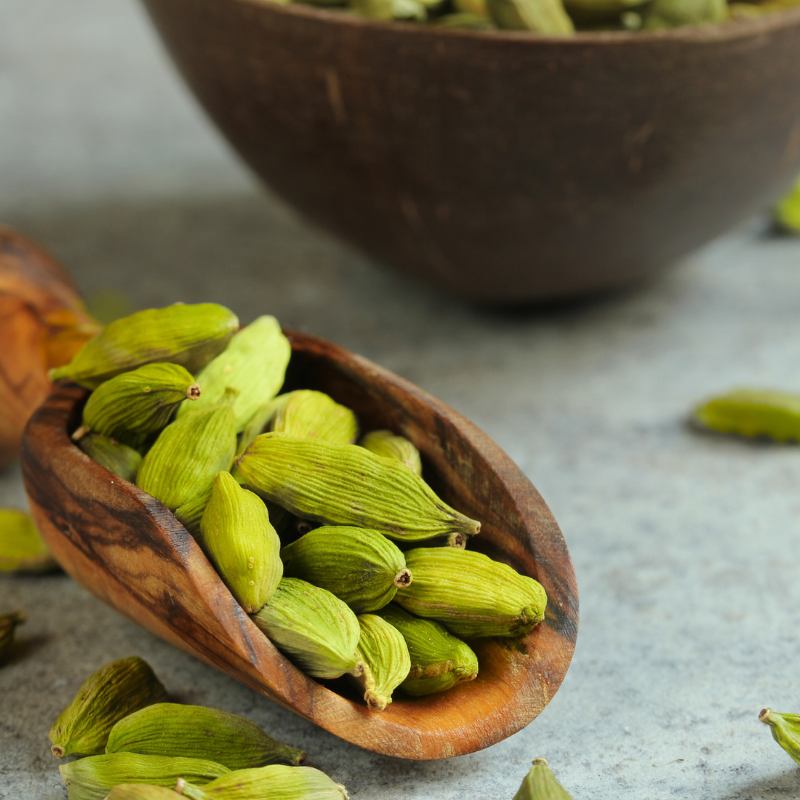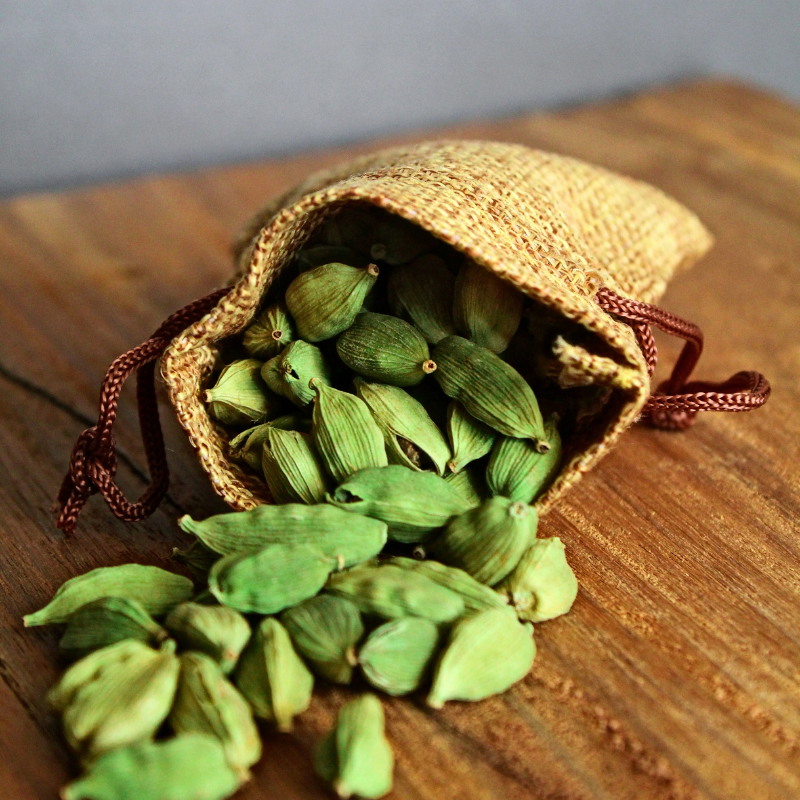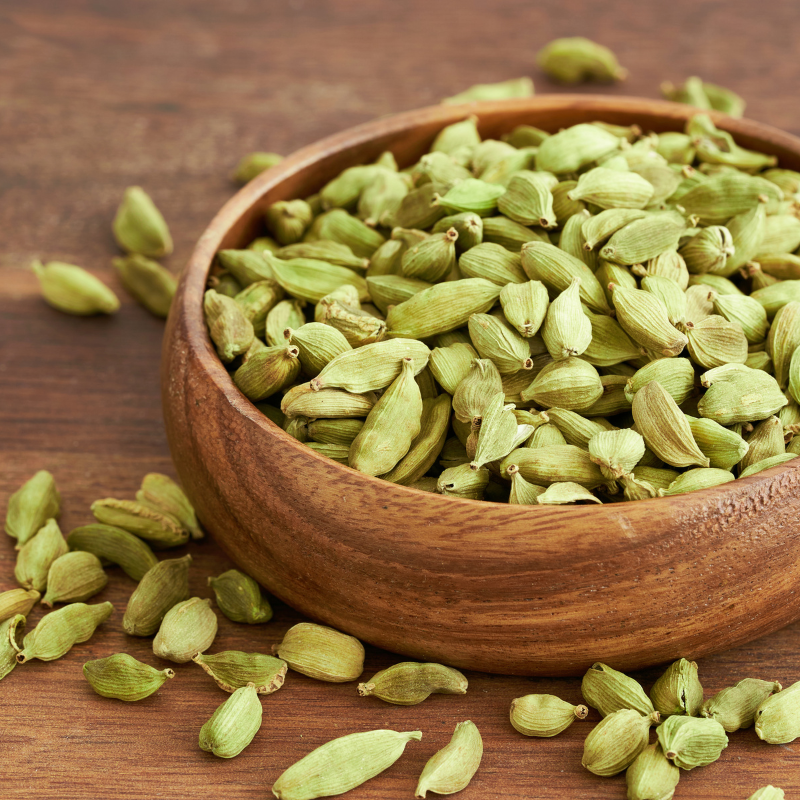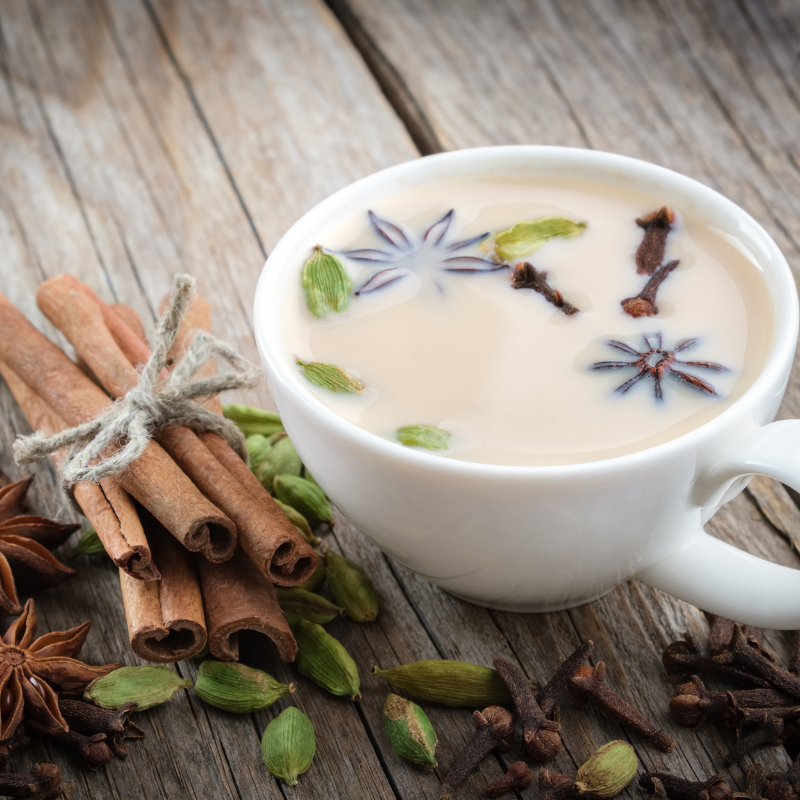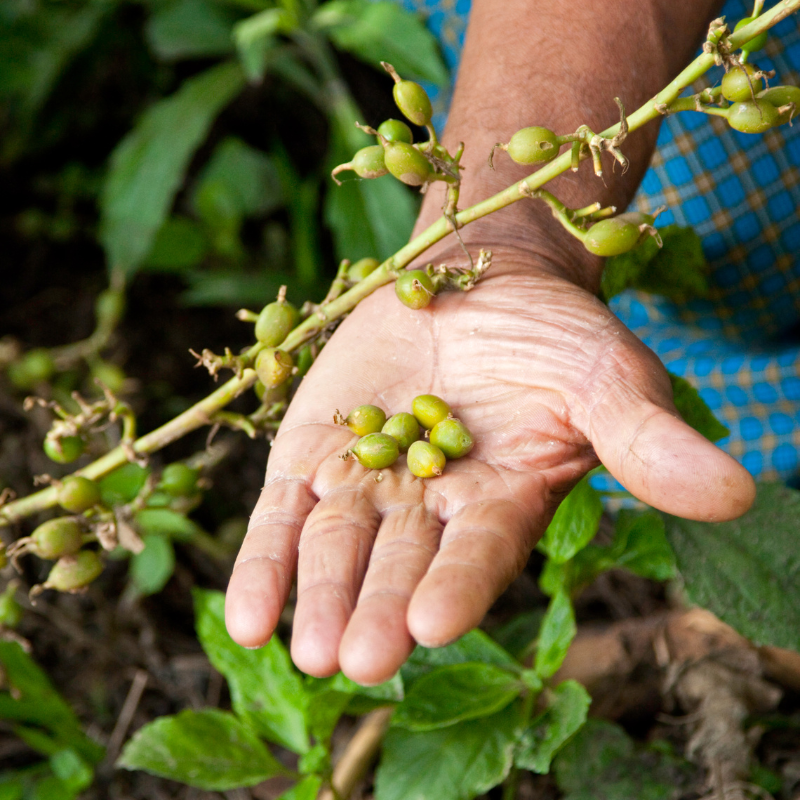Cardamom (Elettaria cardamomum) Seeds
Elettaria cardamomum, commonly known as Cardamom or “Queen of Spices,” is a perennial herbaceous plant from the Zingiberaceae (ginger) family. Native to the tropical forests of southern India and Sri Lanka, cardamom is prized worldwide for its aromatic seeds, which are used in culinary, medicinal, and cultural applications. This exquisite spice is a cornerstone of traditional Indian, Middle Eastern, and Scandinavian cuisines.
Characteristics:
• Plant Description: Cardamom grows as a clumping plant with tall, lance-shaped green leaves, reaching up to 2–4 meters in height. It produces small, fragrant flowers with pale petals and purple streaks, which mature into green, oval-shaped pods containing the aromatic seeds.
• Growth Habit: Cardamom thrives in warm, humid conditions under partial shade, mimicking its natural habitat of tropical rainforests.
• Climate Adaptability: Requires a frost-free climate with temperatures ranging between 15–35°C and consistent rainfall or irrigation.
Uses and Benefits:
• Culinary Applications: Cardamom seeds are used as a spice in both savory and sweet dishes. It is a key ingredient in masalas, curries, desserts, and beverages like chai and coffee.
• Medicinal Properties: Renowned in Ayurvedic and traditional medicine for its digestive, detoxifying, and anti-inflammatory properties. It is often used to relieve indigestion, boost metabolism, and freshen breath.
• Aromatic and Cultural Significance: Cardamom’s rich aroma makes it popular in perfumes, essential oils, and cultural rituals.
Cultivation:
• Sowing: Cardamom seeds should be sown in rich, moist soil in a warm, shaded location. Start seeds in a nursery bed and transplant seedlings after 3–6 months once they are robust.
• Growth Conditions: Prefers loamy, well-drained soils with high organic content. Partial to full shade is essential for optimal growth, mimicking its natural understory environment.
• Maintenance: Regular watering and mulching are crucial to maintain humidity and soil moisture. Fertilize with organic matter to encourage healthy growth and flowering.
Unique Features:
• Premium Spice: One of the world’s most expensive spices, cherished for its distinctive aroma and flavor.
• Ecological Role: Grows naturally in shaded, biodiverse environments, contributing to sustainable agroforestry systems.
• Longevity: A well-maintained cardamom plant can produce pods for up to 10–15 years.
Shipping:
Available for shipping within India and worldwide. Orders are typically dispatched within 1–2 weeks.
From Deodar Seeds Company.
Elettaria cardamomum, commonly known as Cardamom or “Queen of Spices,” is a perennial herbaceous plant from the Zingiberaceae (ginger) family. Native to the tropical forests of southern India and Sri Lanka, cardamom is prized worldwide for its aromatic seeds, which are used in culinary, medicinal, and cultural applications. This exquisite spice is a cornerstone of traditional Indian, Middle Eastern, and Scandinavian cuisines.
Characteristics:
• Plant Description: Cardamom grows as a clumping plant with tall, lance-shaped green leaves, reaching up to 2–4 meters in height. It produces small, fragrant flowers with pale petals and purple streaks, which mature into green, oval-shaped pods containing the aromatic seeds.
• Growth Habit: Cardamom thrives in warm, humid conditions under partial shade, mimicking its natural habitat of tropical rainforests.
• Climate Adaptability: Requires a frost-free climate with temperatures ranging between 15–35°C and consistent rainfall or irrigation.
Uses and Benefits:
• Culinary Applications: Cardamom seeds are used as a spice in both savory and sweet dishes. It is a key ingredient in masalas, curries, desserts, and beverages like chai and coffee.
• Medicinal Properties: Renowned in Ayurvedic and traditional medicine for its digestive, detoxifying, and anti-inflammatory properties. It is often used to relieve indigestion, boost metabolism, and freshen breath.
• Aromatic and Cultural Significance: Cardamom’s rich aroma makes it popular in perfumes, essential oils, and cultural rituals.
Cultivation:
• Sowing: Cardamom seeds should be sown in rich, moist soil in a warm, shaded location. Start seeds in a nursery bed and transplant seedlings after 3–6 months once they are robust.
• Growth Conditions: Prefers loamy, well-drained soils with high organic content. Partial to full shade is essential for optimal growth, mimicking its natural understory environment.
• Maintenance: Regular watering and mulching are crucial to maintain humidity and soil moisture. Fertilize with organic matter to encourage healthy growth and flowering.
Unique Features:
• Premium Spice: One of the world’s most expensive spices, cherished for its distinctive aroma and flavor.
• Ecological Role: Grows naturally in shaded, biodiverse environments, contributing to sustainable agroforestry systems.
• Longevity: A well-maintained cardamom plant can produce pods for up to 10–15 years.
Shipping:
Available for shipping within India and worldwide. Orders are typically dispatched within 1–2 weeks.
From Deodar Seeds Company.
Cardamom, Elettaria cardamomum seeds - 50
- Brand: Deodar Seeds
- Product Code: HER60
- Availability: In Stock
₹342.00
Tags: Elettaria, cardamomum, seeds


